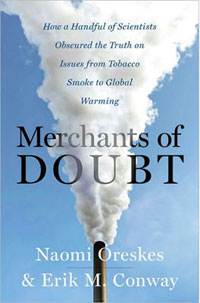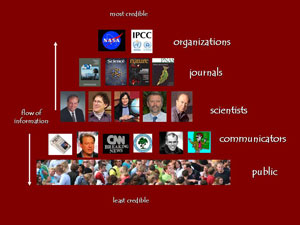
Who should we believe? We spent some time in class working out where we would put different people & groups on a credibility spectrum, based on how much expertise they have, whether they present personal opinion or a broader consensus, and how much bias they are likely to be subject to. We might differ on where exactly to place different people or organisations, but can probably agree on some general principles for judging credibility.
- Image Credit: Kate at ClimateSight.
- See also: Greg Craven's credibility spectrum at the Manpollo project. Greg's book "What's the worst that could happen?" is an interesting personal exploration of how to think about climate change.
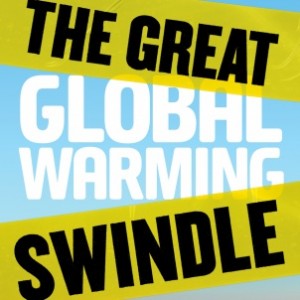
- Image Credit: Martin Durkin, "The Great Global Warming Swindle" 2006.
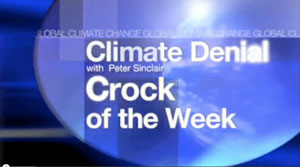
The movie has been thoroughly debunked. For example, this youtube video from Peter Sinclair covers some of the main issues with the claims made in the movie, and counters them with interview clips from climate scientists.
- Image Credit: Peter Sinclair's Climate Denial Crock of the Week
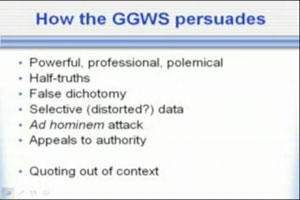
It showed outdated science and misleading graphs. This more detailed presentation by Chris Merchant at Edinburgh University has a more detailed analysis of how climate science is distorted in the movie.
- Image Credit: Chris Merchant, Commentary on the Great Global Warming Swindle. A better quality MP4 version is here.
